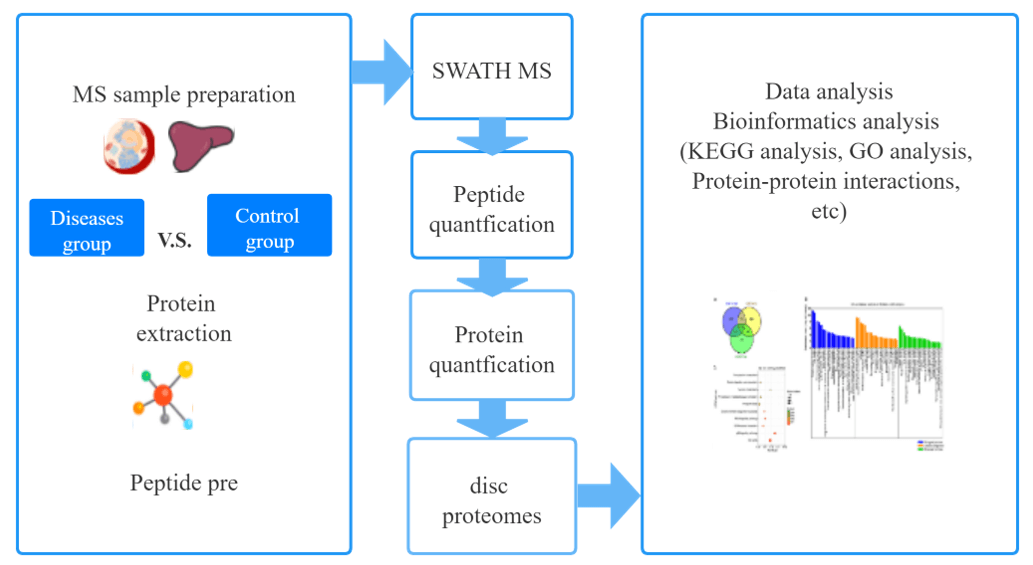Proteomics Solutions for Pathological Study of Disease
The interaction between pathogenic factors and organismal response leads to various changes in the morphology, metabolism, and function of diseased bodies, which is essential for studying and understanding disease mechanisms.
The primary task for the pathological study is to define the causes of disease through various examination methods, including disease development process, functional, metabolic, and morphological changes of the body. The pathological study provides the necessary theoretical basis for understanding and mastering the laws of disease development and for preventing and controlling diseases.
With the rapid development of omics technology, it has become possible to precisely describe the patient's response to disease and propose a treatment plan. Proteomics methods can study proteins expressed in different tissues and body fluids of various time points to detect physiological and pathological conditions. Thus, proteomics provides an accurate and comprehensive database for research of accurate disease typing, early diagnosis, pathogenic mechanisms, therapeutic targets, and treatment prognosis. Associating disease changes with proteomic characteristics, exploring the protein spectrum and protein variation in the process of disease changes, the research results play a revelatory and complementary role in studying the pathogenic mechanism of diseases.
Our DIA MS Services
With the advancement of disease research, proteomic DIA technology has supported the gradual implementation of a large sample size during recent years. Proteomic DIA technology is the ideal tool for large sample size (>10) proteomic assays because of its comprehensive and stable mass spectrometry information collection, which can effectively improve protein and peptide detection coverage and reproducibility.
Creative Proteomics' DIA mass spectrometry platform has been in operation for many years and is the ideal partner for your project. Our DIA MS Proteomics platform is in-depth and extensive on the expression of proteins in the experimental and normal groups and can screen up to 9000 disease-related proteins. Our Target Proteomics platform then verifies these protein candidates, and up to 150 proteins can be precisely quantified in each sample by relative quantification or absolute level of thousands of samples in a high-throughput mode to study proteins in various diseases, including immunology, neurology and oncology.
Benefit fields
- Pathological research of disease
- Pathological research of drug action
Workflow

Advantages
High accuracy
High throughput, more than 9000 proteins can be identified at once
Quantitatively identify nearly all detectable molecules, covering low-abundance proteins/peptides
High repetition rate
Complete and comprehensive sample information storage in the first analysis
Sample Requirements
Animal and clinical tissue specimens: 200 mg/sample
Serum, plasma: 200 μL/sample
Cells, microorganisms: 1×107 cells/sample
Plant tender leaves and buds: 500 mg/sample
Plant seeds, fruits: 100 mg/sample
Report
- Experimental steps
- Relevant parameters
- Mass spectrometry spectra
- Raw data
- Proteomics analysis results


 4D Proteomics with Data-Independent Acquisition (DIA)
4D Proteomics with Data-Independent Acquisition (DIA)